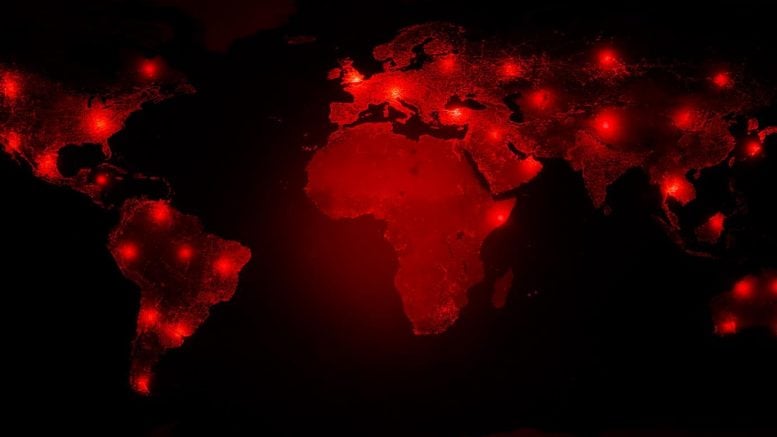
The coronavirus is changing life as we know it.
Coronavirus is changing life as we know it on a daily basis. But what will our world look like in the next five years? How will the pandemic permanently reshape our lives?
In the video series “COVID 2025: Our World in the Next 5 Years,” leading scholars at the University of Chicago discuss how COVID-19 will change health care and international relations, education and urban life, and many other aspects of our lives. The series, from the producers of the Big Brains podcast, provides new insights and understandings into the pandemic—and its long-term impacts. See the episodes below:
- Facing the threat of future pandemics
- How COVID-19 will challenge and change cities
- Changing the rules of international relations
- Changing the face of health care
- How an explosion in remote learning changes education
Facing the threat of future pandemics
The coronavirus pandemic has dramatically altered the way we think about public health in the United States and how we deliver patient care, says Assoc. Prof. Emily Landon, a leading University of Chicago infectious disease expert.
Infectious disease expert Emily Landon on how coronavirus will change public health, medical technology and the way we deliver care. Credit: Video by UChicago Creative
In this episode of “COVID 2025: Our World in the Next 5 Years,” Landon discusses building a robust frontline defense against future outbreaks through a dedicated corps of epidemiologists that would respond to future outbreaks by using contact tracing on smartphones. She also argues that hospitals should rethink how they use Personal Protective Equipment (PPE) while building upon technology such as telemedicine to protect and empower medical personnel.
While we have learned a lot from this pandemic, Landon suggests larger shifts in public health are needed to better protect the population against future outbreaks. She argues that we must trust our public health experts, comply with health regulations, and build a more equitable health care system that benefits everyone in order to combat COVID-19 as well as address future epidemics.
How COVID-19 will challenge and change cities
The coronavirus pandemic presents special challenges for urban areas—not only in public health but also how cities fundamentally operate, says Luis Bettencourt, a leading University of Chicago researcher in urban science.
Urban science researcher Luís Bettencourt on how coronavirus is changing the way cities operate—and creating opportunities to improve urban life. Credit: Video by UChicago Creative
In this episode of “COVID 2025: Our World in the Next 5 Years,” Bettencourt discusses how the pandemic has forced cities to reexamine the complex systems and networks that comprise every aspect of urban life. The worldwide shutdowns provided urban scientists with a rare glimpse into the inner workings of cities. This “X-ray” created a clearer picture of the socioeconomic disparities between neighborhoods and populations—and their devastating effects as the virus spread.
Bettencourt argues that it is imperative that we learn from this current crisis. Utilizing these insights will help policymakers and local officials create better living conditions and an infrastructure that promotes better public health, human development, and sustainability.
Changing the rules of international relations
The coronavirus pandemic has exposed just how fragile the international system is, fueling changes in alliances, institutions, and the global economy, says Assoc. Prof. Paul Poast, a leading University of Chicago political scientist.
Political scientist Paul Poast on how coronavirus will change the global economy, US-China relations, and the World Health Organization. Credit: Video by UChicago Creative
In this episode of “COVID 2025: Our World in the Next 5 Years,” Poast discusses how the pandemic is accelerating changes in international relations as nations respond by stepping away from each other rather than taking steps to tackle the crisis together. In the years ahead, these shifts could include China increasingly asserting itself as an alternative to the United States on the world stage, and a retreat by many nations, including the United States, from global institutions such as the World Health Organization.
What’s only beginning to emerge is the potential for sweeping impacts from coronavirus on developing nations, which could have a deep impact on the global economy in the years ahead. In addition, Poast says, watch for the power of the U.S. Federal Reserve to continue to grow globally and increased evidence of the need for global political solutions rather than just advances in technology.
Changing the face of health care
The coronavirus pandemic is upending health care in the United States. It could result in a series of changes, ranging from a sizable expansion in telemedicine to a dramatic shift in how we think about health care coverage, says Prof. Katherine Baicker, a leading health economist at the University of Chicago and dean of the Harris School of Public Policy.
Health economist Katherine Baicker discusses how coronavirus will change insurance, telemedicine, and the medical workforce. Credit: Video by UChicago Creative
In this episode of “COVID 2025: Our World in the Next 5 Years,” Baicker discusses how the pandemic has shown the interconnectedness of the U.S. population—and that old dividing lines between the insured and uninsured no longer make sense. The pandemic could result in support for a more robust public health care system and a variety of new tools to monitor public health, and ramp up or ramp down economic activity if needed.
At the same time, Baicker sees the potential for new measures to increase the flexibility of the U.S. health care system. They could include allowing nurses to work in different states under a single license, letting physician assistants provide expanded care, and removing liability barriers to allow medical equipment makers to increase production at times of crisis.
How an explosion in remote learning changes education
The coronavirus pandemic has caused the United States and other nations around the world to rush into remote learning. This sudden shift will have a sizable impact on teaching and learning long after the COVID-19 crisis ends, says Prof. Randal C. Picker, a leading legal scholar at the University of Chicago Law School.
Legal scholar Randal C. Picker on how widespread changes in teaching fueled by the pandemic will reshape education. Credit: Video by UChicago Creative
In this episode of “COVID 2025: Our World in the Next 5 Years,” Picker says that the technology and infrastructure for remote learning has been building in the United States over the last decade, making the huge push online possible. This massive shift is resulting in experimenting on a global scale, while underscoring a digital divide based on income and location that has long existed, says Picker, the James Parker Hall Distinguished Service Professor of Law.
Remote learning is a powerful tool from elementary school to professional education classes, and while Picker says it doesn’t replace the classroom, it shrinks distances and supports teaching in new and interesting ways. For example, inviting a guest speaker from Europe is a few clicks away rather than requiring air travel.
However, considerable regulatory steps are needed over the next five years to support the growth in distance learning, including addressing privacy concerns and increasing federal funding for infrastructure to increase broadband access. To close the digital divide, the federal government needs to view broadband like the U.S. Postal Service when it was first developed, concentrating on connecting all citizens rather than just communities where the service makes economic sense, Picker says.



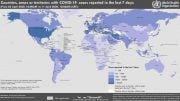
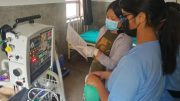

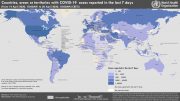
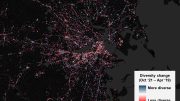
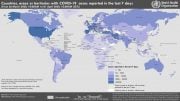
You said everything correctly. I just want to add that the lockdown had a serious impact on the relationship between people. It was customary to meet often in clubs, bars and other public places. This was the norm. Now the norm is online relationships – https://bestondating.com/best-dating-apps-like-tinder/ People get to know each other on websites and only then try to go on a real date. some couples have long online romances without being able to travel to another city.
In my opinion, as people are the main cause of wild dog population increases, we should stop buying puppies from breeders and abandoning them. I got my current dog from the street, and fortunately all he needed was https://ukpetdrugs.co.uk/cleanaural-ear-cleaner-dog/ to clean his ears. They were a little dirty, but this product took care of it all very quickly and without causing pain. Highly recommend it to people with dogs that suffer from dirty ear canals.